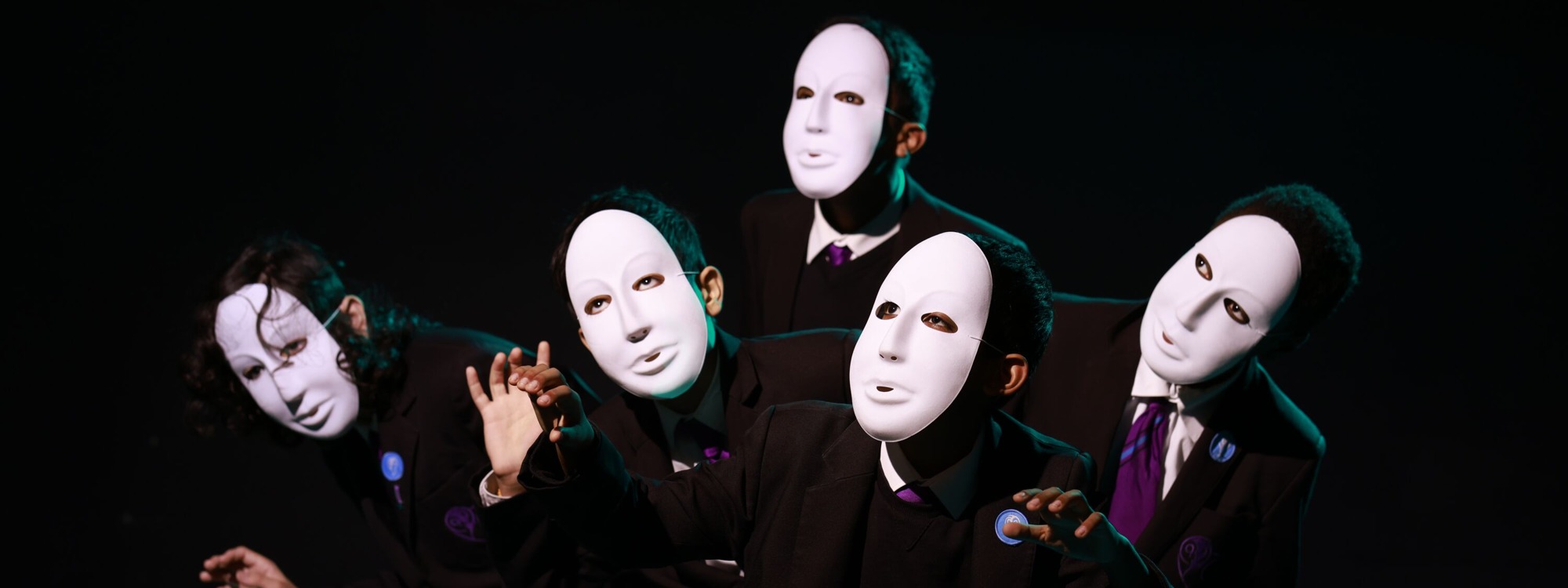- Home
- About
- Curriculum: Subjects
- Drama
Drama
In Drama, students develop an appreciation of drama through creating, performing, and learning the key knowledge of theatre. We explore core ideas around three key areas: the history of theatre and its foundations, British theatre and culture, and genres and styles of theatre. Through this, students will develop their own cultural capital and be able to explore the cultural significance of theatre and its influence on society today, gaining an understanding of how the development of theatre through history and in Britain sits within a wider cultural and political context. Thus we will develop students understanding of where and how theatre fits into their lives and their communities.
Students study a wide range of British and international styles, writers, and experts in Drama; using this knowledge to create, perform and reflect on their work. A core element of Drama is developing students’ knowledge and application of performance. Through rehearsals students develop a wide range of knowledge to develop their imagination, planning, collaboration, leadership, resilience and refining of work. Drama also offers the students opportunities to develop their oral and written analytical and evaluative knowledge by enabling students to reflect on their own and others’ contributions to the preparation and performance of drama.
KS3
In Key Stage 3 we cover a wide range of material which progressively develops the knowledge of the students.
In Year 7 we explore the question, ‘How has theatre developed over time?’ We introduce the students to basics of performance and cover a range of genres including Greek Theatre, Pantomime, Commedia d’ella Arte and modern scripts.
In Year 8 we look at the question ‘How does British theatre link with British culture?’ We develop student’s knowledge through the work of Shakespeare (Macbeth, Romeo and Juliet) and Willy Russell (Blood Brothers). They also get the opportunity to create their own work by devising more substantial Drama work based on their own ideas of British culture and how it is represented in their communities.
In Year 9, we explore the question ‘How have modern theatre practitioners influenced the world of theatre?’ Students explore a wide range of styles and genres by studying the theories of recognised practitioners such as Stanislavski, Brecht and Berkoff. Students then further develop skills in interpreting script through the work of Andrew Payne (Mugged) and developing their use of physical theatre.
KS4
In Key Stage 4 students create and perform their own substantial piece of drama and learn how to analyse and evaluate their contribution to this process. Performances are developed in their interpretations of the work of a range of playwrights including Tanika Gupta, Morgan Lloyd Malcolm and Joe Penhall. Students study the play ‘An Inspector Calls’, exploring its social and political themes and how it could be realised in Performance and Design (this includes set, costume, lighting and sound design).They also learn how to appreciate and evaluate the work of professionals by studying live theatre performances.
We encourage our students to develop their learning beyond the classroom with a variety of theatre trips and an extensive extra-curricular provision which includes drama clubs and performances.
Curriculum Maps
Knowledge Organisers
Homework Details
'You said, we did'
Year 7
Year 7 Term 1 Homework
Year 7 Term 2 Homework
Year 8Year 8 Term 1 Homework
Year 8 Term 2 HomeworkYear 8 Term 3.1 HomeworkYear 8 Term 3.2 Homework
Year 9
Year 9 Term 2 HomeworkYear 9 Term 3.1 Homework
Year 10
Year 10 Term 1 Homework
Year 10 Term 2.1 HomeworkYear 10 Term 2.2 HomeworkYear 10 Term 3.1 HomeworkYear 10 Term 3.2 Homework
Year 11
Year 11 Term 2.1 HomeworkYear 11 Term 2.2 HomeworkYear 11 Term 3.1 Homework
Contact Drama
Do you need assistance from a member of staff?
We have a team of talented, motivated staff who help deliver the best possible education to each of our students.

